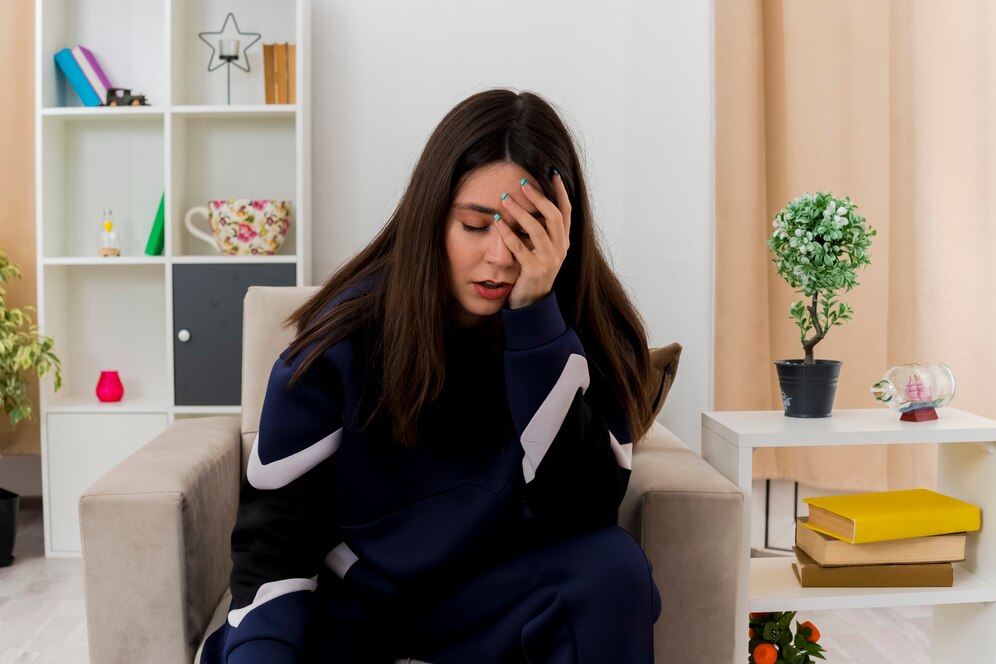Millions of individuals worldwide suffer from anxiety disorders each year, making them one of the most prevalent mental health issues. These conditions can take many forms, frequently impacting people’s feelings, ideas, and actions, causing major daily disturbances. Social anxiety disorder and health anxiety disorder are two of the many varieties of anxiety disorders that are notable for their unique traits and effects.
Although there has been a significant increase in mental health awareness in recent years, stigma and misconceptions about anxiety disorders still exist. Improving the quality of life for individuals impacted requires prompt intervention and efficient treatment. This blog greatly explores these illnesses’ causes, symptoms, distinctions, and possible treatments.
What Is Social Anxiety Disorder?
An intense and ongoing fear of social situations is a defining feature of social anxiety disorder. When anticipating or participating in activities that may involve inspection, criticism, or rejection from others, people with this illness suffer from severe anxiety.
Definition and Core Features
Social anxiety disorder is fundamentally more than shyness. It is a long-term illness that can affect a person’s capacity to operate in various contexts, such as the workplace, educational institutions, and interpersonal interactions.
Common Triggers
Several situations can provoke significant anxiety in individuals with this disorder:
- Public Speaking: Delivering presentations or speaking in front of an audience is a well-documented trigger.
- Social Gatherings: Interacting with unfamiliar individuals in group settings can evoke feelings of vulnerability.
- Meeting New People: The fear of being judged or making a negative first impression often prevents meaningful connections.
- Eating or Drinking in Public: Even seemingly mundane activities can feel daunting under perceived scrutiny.
Symptoms
Symptoms of social anxiety disorder can be categorized into psychological and physical responses:
Psychological Symptoms:
- Fear of embarrassment or rejection.
- Avoidance of social scenarios.
- Persistent worry about upcoming social events.
Physical Symptoms:
- Rapid heartbeat and sweating.
- Nausea or stomach discomfort.
- Trembling or a dry mouth during social interactions.
These symptoms often lead to avoidance behaviors, perpetuating the condition and hindering personal growth.
What Is Health Anxiety Disorder?
An excessive and illogical dread of having or developing a serious medical disease is a feature of health anxiety disorder, formerly known as hypochondriasis. In contrast to common health issues, this disease is typified by intrusive thoughts and actions that seriously interfere with day-to-day functioning.
Definition and Characteristics
People who suffer from health anxiety disorder often mistakenly believe that physical symptoms indicate a serious illness. Despite regular assurances from medical professionals, this ongoing obsession with health frequently leads to needless tests and visits to the doctor.
Key Features and Triggers
Health anxiety is distinguished by a cycle of obsessive worry and compulsive behaviors. Common triggers include:
- Reading about Diseases: Exposure to health-related content can amplify fears.
- Experiencing Minor Symptoms: A simple headache or stomach ache might be catastrophized as a serious illness.
- Medical Appointments: Even routine check-ups can provoke distress due to fear of a negative diagnosis.
Symptoms
The symptoms of health anxiety disorder include:
- Persistent fear of illness despite medical reassurance.
- Engaging in frequent self-examinations.
- Avoiding healthcare facilities out of fear of receiving bad news.
- Difficulty concentrating on daily tasks due to overwhelming health-related fears.
Left untreated, this disorder can severely impact one’s emotional well-being and interpersonal relationships.
Key Differences Between Social and Health Anxiety Disorders
Though both disorders stem from excessive fear and anxiety, their core features, triggers, and behaviors differ significantly.
Triggers
- Social Anxiety Disorder: Triggers include public speaking, social gatherings, and interactions with unfamiliar individuals.
- Health Anxiety Disorder: Triggers revolve around perceived health issues, such as minor symptoms or exposure to medical information.
Thought Patterns
- Social Anxiety Disorder: Fear is focused on social judgment, embarrassment, and rejection.
- Health Anxiety Disorder: Anxiety revolves around misinterpreting bodily sensations as indicators of severe illness.
Behaviors
- Social Anxiety Disorder: Avoidance of social situations and overthinking past interactions.
- Health Anxiety Disorder: Frequent doctor visits, self-checking, or complete avoidance of medical care.
Overlapping Traits
Excessive anxiety, avoidance tactics, and physical symptoms like nausea or elevated heart rate are also features of both diseases. Their underlying causes and symptoms vary, nevertheless necessitating specialized treatment strategies.
Treatment Options for Social Anxiety and Health Anxiety Disorders
Both illnesses are usually treated with evidence-based treatments, prescription drugs, and lifestyle changes. Expert advice is essential for efficient management.
Cognitive Behavioral Therapy (CBT)
One of the best therapies for anxiety problems is cognitive behavioral therapy. It assists people in recognizing and combating the skewed cognitive processes that give rise to their anxieties.
- For Social Anxiety Disorder: Exposure treatment, which involves exposing patients to social settings they dread over time to desensitize them to anxiety triggers, is frequently incorporated into cognitive behavioral therapy.
- For Health Anxiety Disorder: Breaking the cycle of compulsive health-checking habits and catastrophic thinking is the main goal of therapy.
Medications
Medications are often prescribed to alleviate severe symptoms, enabling individuals to engage more effectively in therapy.
- Selective Serotonin Reuptake Inhibitors (SSRIs): These antidepressants are commonly used to treat both disorders, as they regulate mood and reduce anxiety symptoms.
- Beta-Blockers: Particularly helpful for managing physical symptoms of anxiety, such as rapid heartbeat or trembling.
Medications should always be taken under the supervision of a licensed medical professional.
Lifestyle Changes
Incorporating healthy habits can complement therapy and medication:
- Mindfulness and Relaxation Techniques: Practices like meditation, deep breathing, and yoga can help individuals manage stress and anxiety.
- Regular Exercise: Physical activity releases endorphins, promoting a sense of well-being and reducing anxiety symptoms.
- Adequate Sleep: Ensuring consistent, high-quality sleep supports mental health and emotional resilience.
The Importance of Professional Guidance
To properly treat anxiety disorders, it is essential to seek assistance from a licensed mental health practitioner. Professionals’ knowledge and evidence-based methods can make a big difference in controlling symptoms and enhancing quality of life.
Experts in mental health can offer individualized treatment based on each patient’s particular requirements. They can assist in discovering the underlying reasons for anxiety and creating useful coping mechanisms. They also advise on picking the best course of action, be it medicine, therapy, or a mix of the two.
Additionally, professional help creates a secure, accepting atmosphere where people may freely express their worries and difficulties. Building resilience and giving people back control of their lives are made possible by this therapeutic alliance. Progress is guaranteed to be consistent, long-lasting, and aligned with long-term mental health objectives when professional help is obtained.
If you’re struggling with anxiety, reaching out to a licensed mental health provider can be the first step toward lasting recovery and improved well-being.
Conclusion
Both social anxiety disorder and health anxiety disorder can greatly impact a person’s quality of life. Recovery is achievable, though, with the correct mix of counseling, medicine, and lifestyle modifications. Effective management of these illnesses begins with an understanding of their distinctive features.
Don’t let anxiety dictate your life any longer. Take the first step toward reclaiming your peace of mind and well-being with Insight Choices. A licensed mental health professional can provide the support and tools you need to thrive. Break free from the cycle of worry and fear with expert guidance. Contact us today and start your journey toward lasting recovery and a brighter future.
FAQ’s
- What is the primary cause of social anxiety disorder?
Social anxiety disorder typically arises from a combination of genetic, environmental, and neurological factors. Early experiences of rejection, criticism, or humiliation can also contribute to its development.
- Can health anxiety disorder lead to physical health issues?
Yes, prolonged stress and worry associated with health anxiety disorder can lead to physical symptoms such as headaches, gastrointestinal problems, and weakened immunity due to chronic stress.
- How long does it take to see results with therapy for anxiety disorders?
The timeline varies depending on the individual and the severity of the disorder. Most people notice significant improvements within 8–12 weeks of consistent therapy, particularly with CBT.
- Are anxiety disorders hereditary?
There is evidence to suggest that anxiety disorders can have a genetic component. However, environmental factors and life experiences also play crucial roles in their development.
- Can anxiety disorders be cured permanently?
While there is no definitive “cure,” anxiety disorders can be effectively managed through therapy, medication, and lifestyle adjustments, allowing individuals to live fulfilling lives.

Dr. Chang is a highly respected psychiatrist with extensive experience serving patients in the greater Los Angeles area. With a distinguished background in psychiatry, he has dedicated his career to advancing mental health care through both clinical practice and academic contributions.

